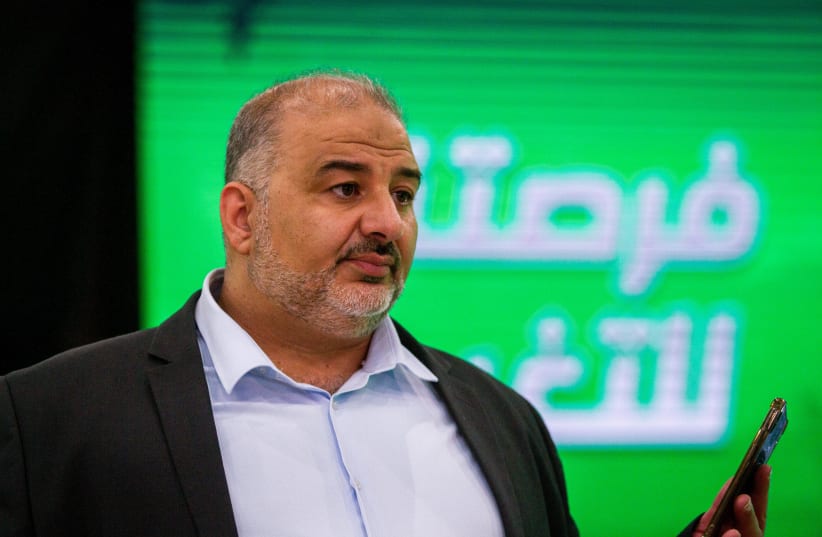A survey conducted by the Israel Democracy Institute in March has found that less than half of Israelis (48%) support the formation of a government with the inclusion of outside support from the Arab parties.
Released on the heels of Israel's fourth election in two years, the survey found that among the Jewish public, division still remains as to the potential roles of Israel's Arab parties in the government coalition-forming process. According to the survey, some 44% of the Jewish public support a government propped up by the Arab parties, in contrast to 41% who oppose it.
This is in stark difference to a similar poll taken more than a year earlier in February 2020, when only 23% of Israeli Jews supported Arab parties propping up a government coalition. Among the Arab populace, the survey found that 65% support the Arab parties playing a role in government.
Broken down by ideological affiliation, some 79% of left-wingers, 55% of centrists and 34% of right-wing Israelis support a government coalition based on cooperation with the Arab parties, as opposed to 38% of centrists and 10% of right-wing Israelis supporting the idea in February 2020.
The survey also focused on issues affecting the Arab community of Israel. Noting the low turnout in the March 2021 election, respondents were asked what the exact cause of anger was toward the Israeli government. Some 33% said the anger was driven by the ineffective way the government handles issues in the community, while another 31% expressed frustrations over the political leadership of the Joint List.
On the possibility of a fifth election, a third of the Israeli public (32%) said that the pro-Netanyahu bloc had a higher likelihood of forming a government coalition, while 17% indicated a stronger possibility of the anti-Netanyahu bloc forming a government. Some 15% said the chances for the two blocs are equal, and almost a quarter (24%) said that both blocs will fail to form a viable coalition.
By political affiliation, 45% of right-wing Israelis say Netanyahu has a strong chance of forming a stable coalition government, in contrast to 25% among centrists and leftists who are confident in the formation of a center-left coalition government.
Despite the results of the survey, a vast majority of Israelis (80%) believe that a fifth election will occur in the coming year.
